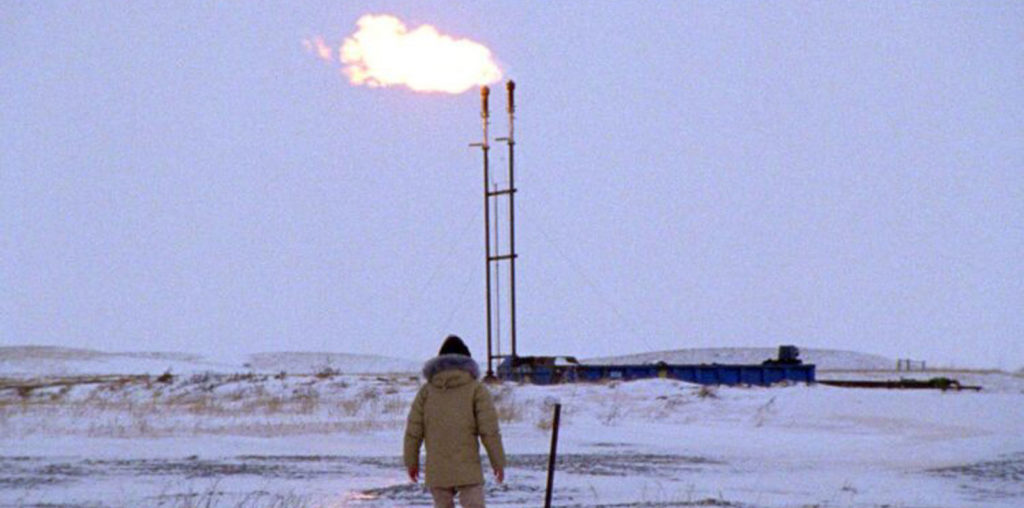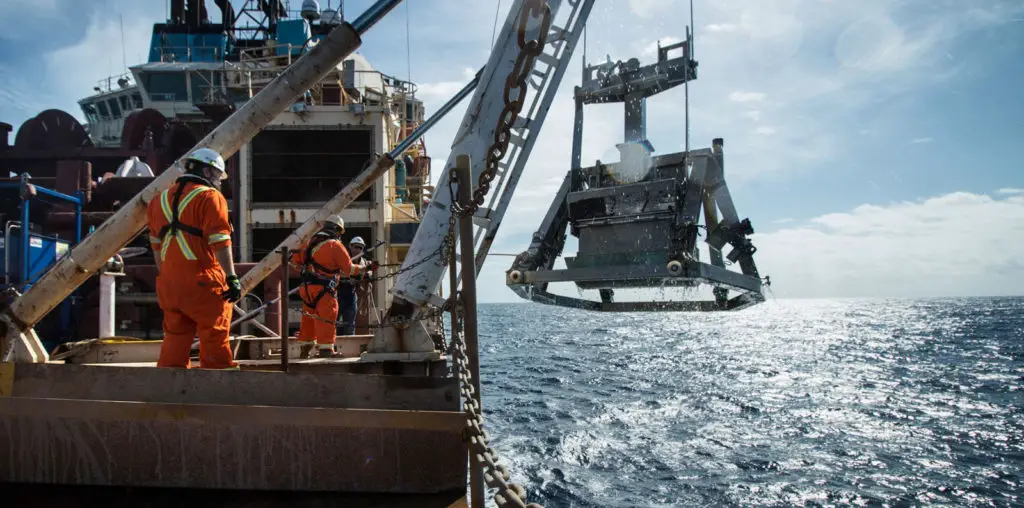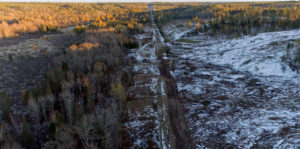
When I consider the issues surrounding Climate Change, I’m constantly reminded that this very broad topic of the environmental crisis we face is made up of a myriad of smaller battles to fight. One such battle takes place in Samantha Praus and Jan Haaken’s documentary, Necessity: A Two-Part Documentary Series.
In Necessity, the bad guy is Enbridge, the largest manufacturer of pipelines for the big oil companies. Currently, Enbridge pipes transport tar sands oil from Alberta to North Dakota to, finally, Wisconsin. Tar sand is a sludge-like mixture of clay and oil, and it’s forced through the pipeline at incredibly high amounts of pressure. Leaks in these pipes send the toxic sludge into the lakes and water systems of the indigenous peoples’ land along the pipeline’s path.
In part one, a group of protesters, dubbed “valve-turners,” break onto private property and shut off several of the pipeline’s valves… a perilous prospect for regular folks like us to do. Having enough with these protesters, Enbridge decides to make an example of them and prosecute the valve-turners to the full extent of the law. The environmentalist lawyers step in and argue on the defense of “Necessity”— the idea that the small damage done by the defendants outweighs the great damage done by Enbridge.
In part two, Necessity follows a large group of protesters who, in the act of civil disobedience, lay down on train tracks to prevent the passage of trains transporting vast amounts of oil across the country. Their reasoning concerns the growing number of train derailments on indigenous lands that have killed people and created environmental disasters from oil spillage and out-of-control toxic fires.
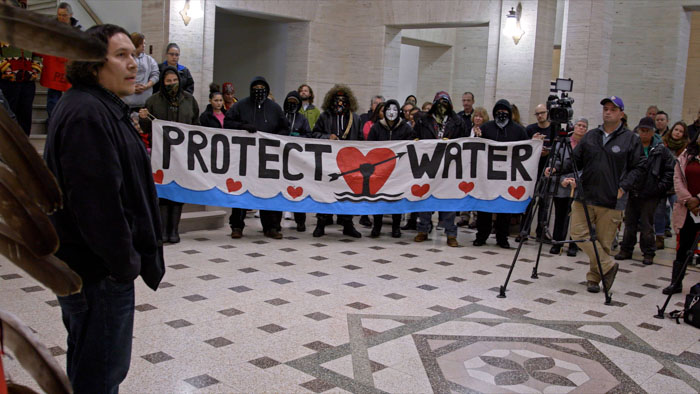
“…the bad guy is Enbridge, the largest manufacturer of pipelines for the big oil companies.”
At first, this appears to be a story about climate activism. But there are so many issues surrounding these two simple acts of protest that it will make your head spin. So let’s break a few down. In part one, what is set up as a simple case of forcing the oil and pipeline companies to clean up their messes becomes an indictment on the energy industry as a whole.
The documentary then jumps into many other issues, including the centuries-long mistreatment of Native Americans and indigenous peoples, the unequal treatment of the indigenous protesters versus the white protesters, the gradual loss of Native American culture, and how unions are now starting to put their foot down on aiding and abetting Big Oil. Finally, it all ends with this multi-billion dollar game between corporate lawyers and the volunteer staff of climate activists.
Let’s be real here. Necessity is pretty one-sided in the debate…oil companies and the energy industry are bad. No one from Big Oil is represented. That might be by the filmmakers’ choice or because the oil companies refused to take part. I mention this not to take a side necessarily but to be clear that there is one audience for this from a “preaching to the choir” standpoint. In other words, the film will appeal to those on the pro-environment side and may not necessarily win over new converts… but it damn sure tries.
Politics aside, Haaken and Praus tell a thrilling and dire story. Their subjects are pretty-much grassroots protestors, unsophisticated yet passionate. The filmmakers do an incredible job getting their story across and spotlighting the drama they face on the ground during protests and in court. As a result, you get a clear idea of what these people are fighting for and why they’ve chosen non-violent civil disobedience as their weapon.
If you are passionate about the environmental fight in the northern U.S. regarding pipelines, Necessity: A Two-Part Documentary Series was made for you. If you’re on the other side of the political divide, a documentary like this is what you need to see to challenge your current beliefs and see the issue from a different perspective.
For screening information, visit the Necessity: A Two-Part Documentary Series official website.
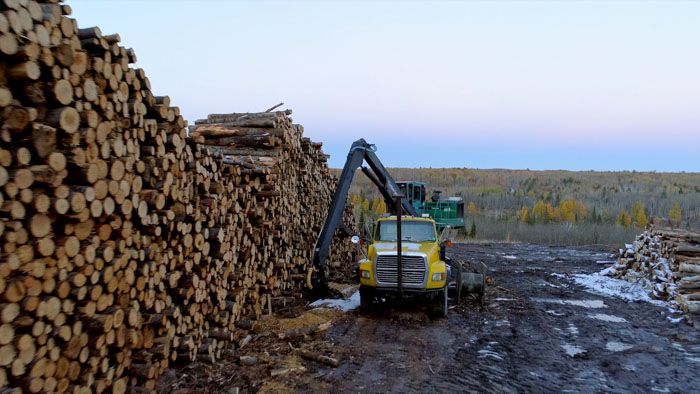
"…[will] challenge your current beliefs and see the issue from a different perspective."
